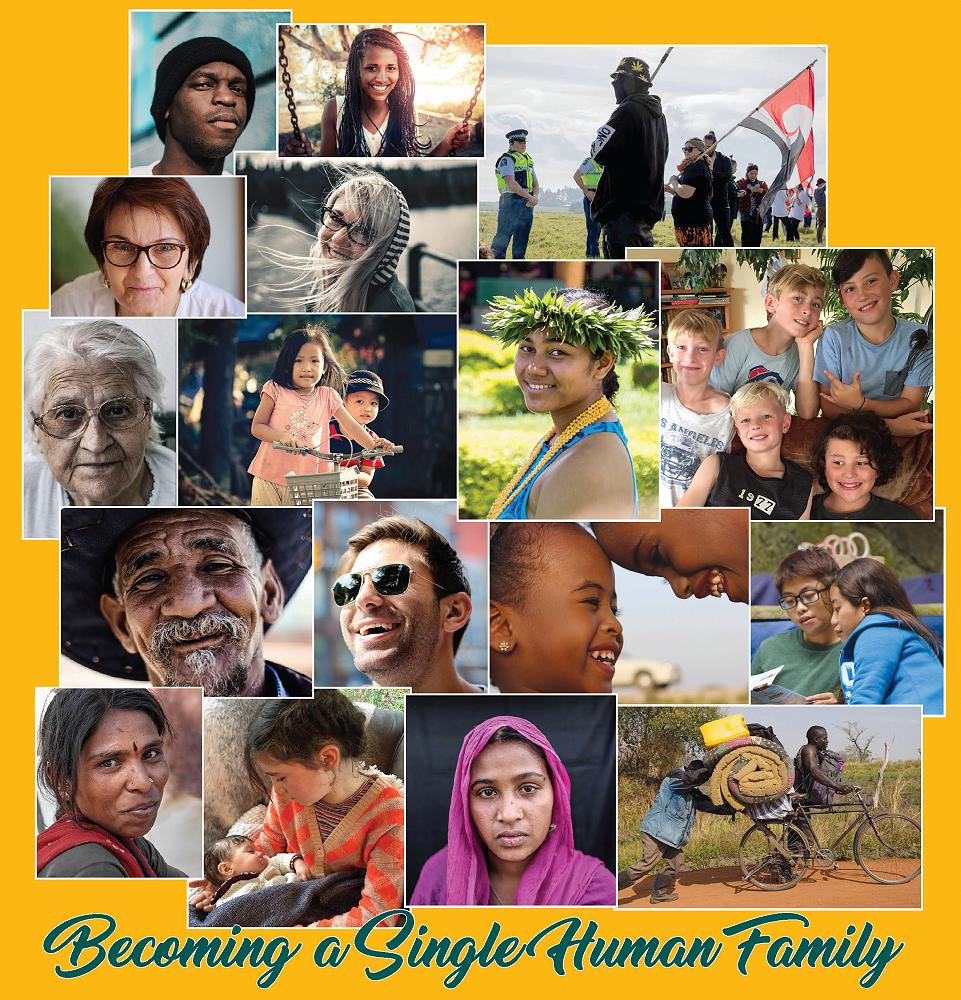
Becoming a Single Human Family
Mary Thorne summarises Pope Francis's vision of all peoples relating as a family.
In Fratelli Tutti, Pope Francis sets out his desire to contribute to the establishment of close, trusting, familial relationships which encompass the whole of humanity and enable a future of social and ecological justice and peace. He introduces his concept of human connectedness inspired by the openness of heart shown by St Francis of Assisi whose love and compassion were given to all without discrimination.
Connecting Around the World
Pope Francis describes the need for renewed initiative and concerted effort to achieve this widespread caring connection in a world fractured and at odds. He notes trends which hinder attitudes of universal respect and concern. Among these are the divisive effects of cynicism, indifference and casual disposability inherent in contemporary capitalist society. These destroy relationships, as do despair and discouragement, fear and mistrust. He criticises the manipulated reality created by digital communication which can deliver information without wisdom. He prays that the great sorrow of the present COVID-19 pandemic will result in a new shared passion to create a community of belonging and solidarity.
Relating with Love
At the heart of the document is a reflection on the parable of the Good Samaritan in Luke’s Gospel. This is the model of authentic human love of others. We are invited to ponder each of the characters in the story and recognise our own complicity in sometimes turning away and walking past occasions of great need.
Becoming a Single Family
The final six chapters of the encyclical outline the Pope’s vision of the implementation of our living as a single human family, sharing the same flesh and planet, as travellers and companions on our journey through history, each of us a unique individual of inestimable worth.
Politically, Pope Francis urges that we structure all political and economic institutions to foster the common good and care for our common home, our planet. He notes the need for reform of the United Nations Organisation and international economic institutions so that they have more power to act on behalf of the family of nations. He rejects war and capital punishment as answers that do not resolve the problems that they are meant to solve, but instead exacerbate retributive violence. He asks for compassion at national borders and speaks of a politics of open-hearted generosity.
Healthy relationships require authentic communication and the Pope speaks of a new culture of encounter based on truth and dialogue. This calls for esteem and respect for others and the practice of kindness. He credits the internet with offering immense possibilities for interactions and solidarity. He says this is something truly good, a gift from God. Francis says that truth is an inseparable companion of justice and mercy and should not lead to revenge but to reconciliation and forgiveness.
Calling on Believers
Finally, Pope Francis posits the believers of the different religions as a starting place for this transformative initiative. He expresses his gratitude to Orthodox Patriarch Bartholomew and the Grand Imam Ahmad Al-Tayyeb for encouragement and inspiration. He also acknowledges the inspiration of Martin Luther King Jr, Desmond Tutu, Mahatma Gandhi and Charles de Foucauld.
Perhaps the most succinct summary of this document is a quote from Julian Tenison Woods, priest, scientist and co-founder, with Mary MacKillop, of the Sisters of St Joseph. “We must love others so much as to feel no happiness as great as that of serving them and advancing their interests.”
Women Missed Out
Catholic women in English-speaking countries and beyond were shocked and hurt by the masculine language of brotherhood in the title and throughout this encyclical. We also note the omission of women’s voices. There is not one woman among the many citations. Women are mentioned twice in regards to equal human rights but in light of paragraph 48, which speaks of the necessity to listen attentively to what others are saying, it is hard not to feel angry — women are crying out for equal participation in the Church and do not feel heard. The Catholic Church remains a bastion of gender inequality.
Fratelli Tutti reminds me of a letter from my much-loved grandmother. It is full of loving concern for all and practical wisdom born of faith and lived experience of struggle but its mode of expression seems not to have registered contemporary values and sensitivities about egalitarianism and mutuality between the sexes within the Catholic Church itself.
Tui Motu Magazine. Issue 256 February 2021: 6-7
